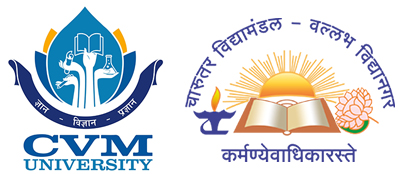Counselling Cell
When it comes to psychological counseling related to mental health for students, faculty members, and non-teaching faculty members, the roles and responsibilities of a counselor encompass various aspects of support and intervention tailored to the specific needs of each group. Here’s a breakdown of these responsibilities:
- Assessment and Diagnosis: Conduct thorough assessments to understand the mental health concerns and needs of students, faculty, and non-teaching staff. This may involve administering psychological tests, conducting interviews, and gathering relevant information to formulate accurate diagnoses.
- Individual Counseling: Provide confidential one-on-one counseling sessions to address the mental health concerns and challenges faced by students, faculty, and non-teaching staff. This could include issues such as anxiety, depression, stress, grief, trauma, relationship problems, etc.
- Crisis Intervention: Offer immediate support and intervention during mental health crises, including suicidal ideation, severe anxiety or panic attacks, acute stress reactions, etc. Implement appropriate crisis management strategies and facilitate access to emergency services when necessary.
- Psychoeducation: Educate students, faculty, and non-teaching staff about mental health issues, coping strategies, and self-care practices. Conduct workshops, seminars, and training sessions to promote mental health awareness, reduce stigma, and foster a supportive environment within the educational institution.
- Referral and Coordination: Collaborate with external mental health professionals, psychiatrists, and healthcare providers to facilitate referrals for specialized services, such as psychiatric evaluation, medication management, or intensive therapy. Coordinate care and follow-up to ensure continuity of support for individuals receiving external services.
- Support Groups: Facilitate support groups for students, faculty, and non-teaching staff experiencing similar mental health challenges. Provide a safe and supportive space for individuals to share their experiences, receive validation, and learn from others facing similar issues.
- Consultation and Collaboration: Consult with faculty and administrators regarding mental health concerns impacting the academic performance, behavior, or well-being of students, faculty, or non-teaching staff. Collaborate with interdisciplinary teams within the educational institution to develop comprehensive intervention plans and support strategies.
- Accessibility and Inclusivity: Ensure that mental health services are accessible and inclusive for individuals from diverse backgrounds, cultures, and identities. Address barriers to accessing services, such as language barriers, cultural differences, or financial constraints, and provide culturally sensitive and affirming care.
- Confidentiality and Ethics: Uphold ethical standards of confidentiality and privacy in all counseling interactions, while also adhering to legal and ethical guidelines governing mental health practice. Respect the autonomy and confidentiality rights of clients while maintaining appropriate boundaries.
- Self-Care and Professional Development: Engage in ongoing self-care practices to prevent burnout and maintain personal well-being. Pursue professional development opportunities to enhance counseling skills, stay updated on evidence-based practices, and remain informed about emerging trends in mental health care.
By fulfilling these roles and responsibilities, counselors can play a crucial role in promoting mental health and well-being within the educational community, supporting the holistic development and success of students, faculty, and non-teaching staff alike.
| Sr. No. | Institute level Anti-ragging Committee | Designation | Email Id |
|---|---|---|---|
| 1 | Dr. Maulika Patel, Principal, MBIT |
Chairperson | principal@mbit.edu.in |
| 2 | Dr. Darshna J. Prajapati, Associate Professor |
Member Secretary | djprajapti@mbit.edu.in |
| 3 | Dr. Gopi bhatt, Associate Professor & Head CE Dept. |
Member | head.ce@mbit.edu.in |
| 4 | Prof. Jagruti Prajapati, Assistant Professor |
Member | jhprajapati@mbit.edu.in |
| 5 | Prof. Mehul Thakkar, Assistant Professor |
Member | mgthakkar@mbit.edu.in |

